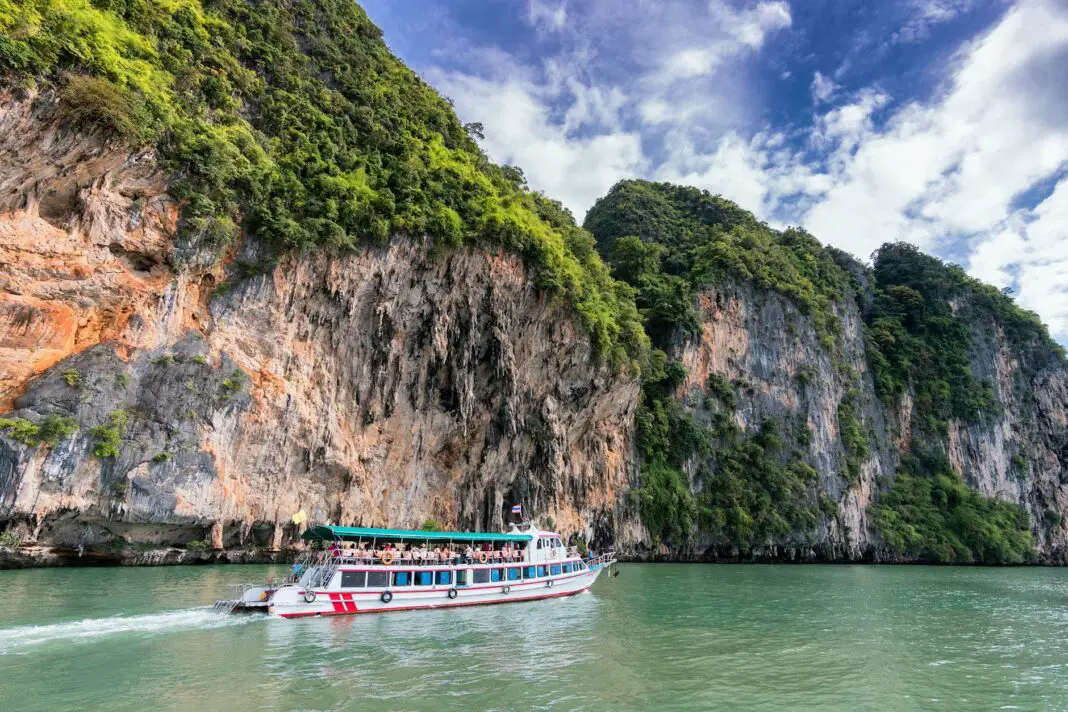Embarking on a trip to Thailand is often an exhilarating journey filled with captivating landscapes, rich cultural experiences, and thrilling adventures. Adventure activities in Thailand are not only a source of excitement but also open up discussions about their potential to benefit the environment. As visitors engage in activities like eco-trekking, snorkeling, or kayaking, they can contribute to conservation efforts and awareness. This blog post delves into how adventure tourism in Thailand can become a force for good, igniting joy while fostering sustainability.
The allure of Thailand is undeniable. With its breathtaking beaches, lush jungles, and vibrant cities, it attracts millions of adventurers every year. But beyond the thrill, there’s a growing recognition of the responsibility that comes with tourism. By participating in adventure activities, travelers can play a significant role in preserving Thailand’s spectacular natural heritage. Let’s dive deep into this exciting topic and explore how enjoying the great outdoors might also help save it.
Table of Contents
- Adventure Activities in Thailand
- The Environmental Impact of Adventure Tourism
- The Role of Ecotourism
- Benefits of Adventure Activities for Conservation
- Actionable Insights for Conscious Travelers
- Final Thoughts on Adventure and Conservation
- Frequently Asked Questions
Adventure Activities in Thailand
Thailand is a playground for those chasing adrenaline. From the stunning limestone cliffs of Krabi to the dense jungles of Chiang Mai, adventure activities abound. Consider rock climbing in Krabi, where adventurers can scale limestone crags while enjoying breathtaking views of emerald waters. Surfing the waves in Phuket or taking part in a jungle ziplining adventure offers thrill-seekers an unforgettable experience. Each of these activities opens the door to new vistas and fosters a deeper connection with nature, making people more attuned to the need for conservation.
In addition, trekking in national parks like Khao Sok is a fantastic way to explore diverse ecosystems rich in flora and fauna. Kayaking through mangrove forests not only provides a stunning backdrop but also offers an up-close look at the intricate balance of local ecosystems. Snorkeling in crystal clear waters near the Similan Islands unveils a vibrant underwater world, reminding participants of the delicate life forms that call it home. This communion with nature not only enriches travelers but also heightens their awareness of environmental issues.
The Environmental Impact of Adventure Tourism
The environmental impact of adventure tourism can be profound, often generating a mixed narrative. On one hand, excessive tourist activity can lead to degradation of natural habitats. On the other hand, responsible adventure tourism can foster preservation efforts. When participants dive into the clear waters of Thailand’s rich marine ecosystems, they witness firsthand the destruction caused by pollution and unsustainable fishing practices. Such experiences can transform individuals into advocates for marine conservation, driving home the importance of sustainable practices.
To mitigate adverse effects, many tour operators in Thailand are adopting eco-friendly practices. This includes organizing beach clean-up initiatives after snorkeling tours, planting trees in cooperation with national parks, and training guides to raise awareness about sustainability among tourists. The actions taken can substantially counterbalance potential damage, paving the way for a more eco-conscious approach to tourism. By emphasizing the importance of respecting local cultures and environments, adventure activities can become platforms for positive change.
The Role of Ecotourism
Ecotourism serves as a beacon of hope, merging exploration with environmental stewardship. Advocates promote responsible travel that minimizes environmental impact while enhancing cultural respect. In Thailand, where so much of the allure lies in its diverse ecosystems, ecotourism can foster a deeper appreciation for nature and inspire collective conservation efforts. Tour operators who emphasize education can transform a hike into a lesson about local wildlife, flora, and the fragile interconnections within ecosystems.
Moreover, participating in ecotourism provides financial support for local communities, allowing them to invest in sustainable projects. Travelers can partake in activities such as guided wildlife tours or community-based conservation programs that not only enrich their adventures but also empower local residents. This synchronicity between adventure and awareness cultivates an environment where tourism can fund the preservation of the very landscapes that visitors cherish.
Benefits of Adventure Activities for Conservation
Engaging in adventure activities in Thailand yields numerous benefits not just for the tourists, but for the environment as well. Firstly, adventure tourism can generate critical funds for conservation initiatives, creating revenue streams that support the management and protection of natural areas. These funds can help combat issues such as illegal hunting and deforestation, allowing ecosystems to thrive.
In addition, adventure tourism can play a vital role in raising awareness about environmental issues. By immersing themselves in nature, travelers often return home with stories and newfound knowledge that can inspire friends and family to make more sustainable choices. Similar insights can spur more significant action; when travelers advocate for conservation—or even adopt environmentally friendly practices in their daily lives—they contribute to a ripple effect that extends far beyond Thailand’s shores.
Actionable Insights for Conscious Travelers
As a conscious traveler, several actionable steps can enhance your impact while exploring Thailand’s natural wonders. Prioritize local operators that embrace eco-friendly practices, ensuring your participation contributes positively to the environments you enjoy. Opt for tours that promote conservation awareness, whether by supporting local wildlife sanctuaries or participating in reforestation projects. This not only deepens your experience but cultivates responsibility among future adventurers.
Moreover, practice the principles of Leave No Trace during your adventures. Ensure you clean up after yourself, respect wildlife, and tread lightly in sensitive areas. Engage with local communities to understand their challenges and actively support their conservation efforts. By making informed choices, you become an ambassador for sustainable tourism, ensuring that the beauty of Thailand endures for generations to come.
Final Thoughts on Adventure and Conservation
Combining adventure with conservation in Thailand ignites a powerful narrative. As travelers seek thrill and excitement, they can simultaneously become stewards of the earth, championing sustainable tourism practices. The evolving landscape of adventure tourism provides both wonders and opportunities for ecological preservation. By making informed choices and participating in responsible activities, adventurers not only enrich their experiences but also contribute to the health of Thailand’s unique ecosystems. Together, let’s cherish and protect this remarkable country while creating lasting memories through adventure.
Frequently Asked Questions
How do adventure activities affect the environment in Thailand?
Adventure activities can lead to both positive and negative environmental impacts. While they can cause habitat degradation, they also raise awareness and generate funds for conservation efforts.
What are some eco-friendly adventure activities available in Thailand?
Activities like eco-trekking, kayaking, and wildlife tours run by responsible operators prioritize sustainability and environmental awareness, providing enriching experiences without harming nature.
Can adventure tourism help local communities?
Indeed, responsible adventure tourism can bolster local economies and promote conservation initiatives, allowing communities to invest in sustainable practices that benefit both residents and wildlife.
What should travelers do to minimize their impact?
Travelers can minimize their impact by making conscious choices, including using eco-friendly tour operators, practicing Leave No Trace principles, and supporting local conservation projects.
Image Credit: Pexels





